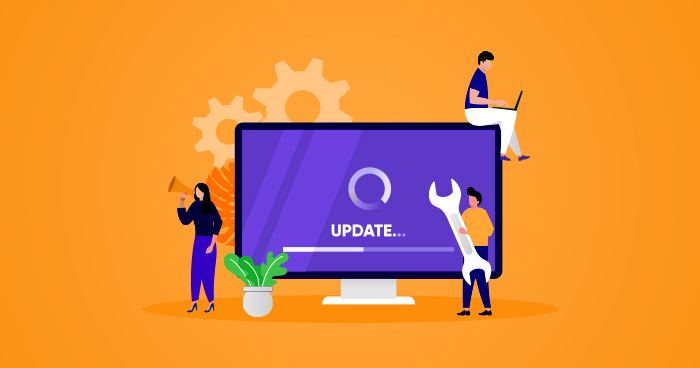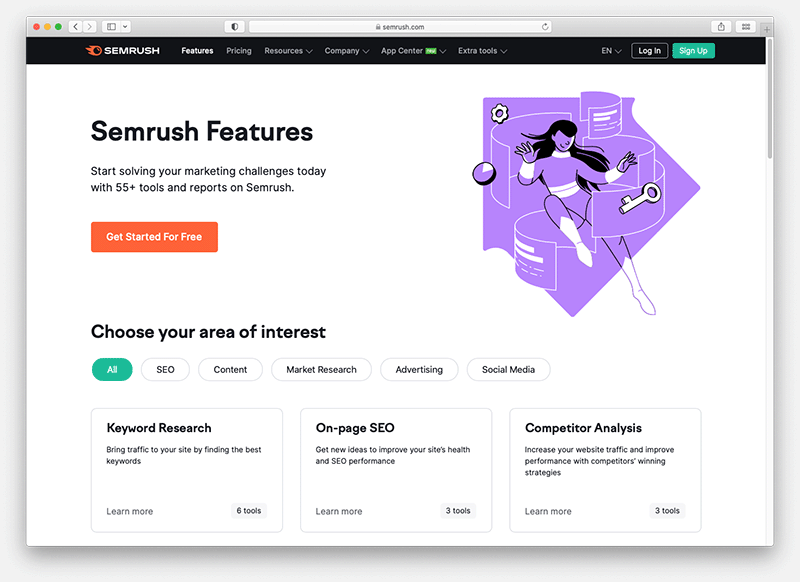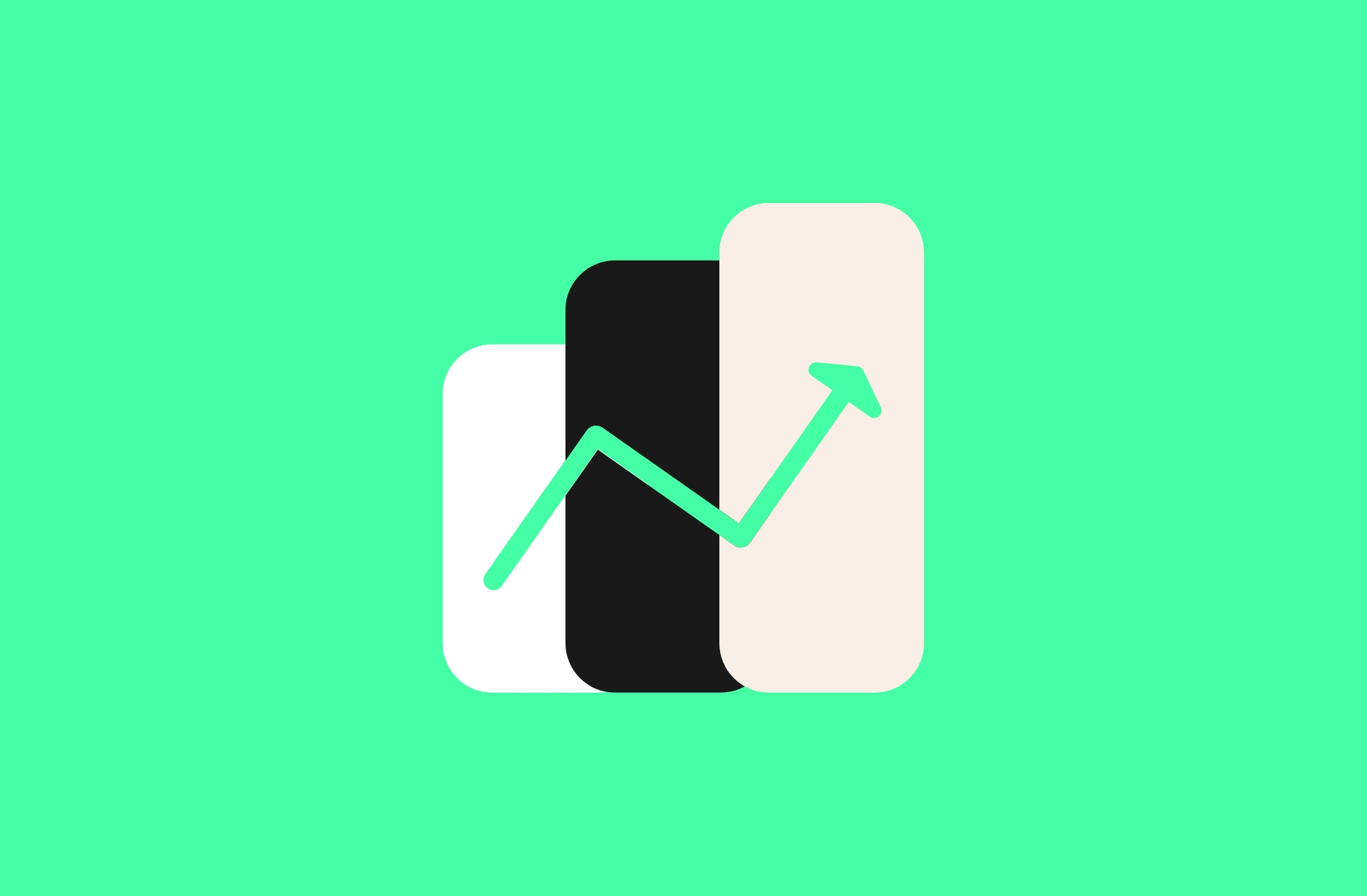Have you just launched your website or plan to launch it soon? That’s amazing, you’ve done a big part of the job. But not all of it. A website has become a significant asset for every business nowadays. But besides creating and launching it, you need a proper monthly website maintenance plan.
Many businesses forget about supporting their websites after their launch. You have probably visited websites that are too slow, have broken links, or are outdated. That’s because they aren’t maintained properly. And you wouldn’t want to waste your time on these websites and their products, right?
If you don’t want your customers to be in a similar situation and feel frustrated while browsing your website, you need a monthly website maintenance plan. But what is it and what should be included in a website maintenance plan? In this article, we’re going to answer all these essential questions about website maintenance.

What is a Monthly Website Maintenance Plan?
A monthly website maintenance plan is a list of tasks that websites need to undergo to keep them up to date, secure and well-performing. And not only that, there are many other reasons why website maintenance is important for every business. Website maintenance includes all the areas of the website that need constant support and updates.
Depending on your website, whether it’s custom-made or based on a CMS, it would require a different kind of website support. Of course, a custom-coded website requires more support than those based on CMS, as you have to supervise constantly that all parts of your code work properly. While with a CMS, some part of the update and/or support is done by the CMS provider.
But overall all websites work in the same way, whether it’s custom-made or based on a CMS. So, we’ll look through all the essentials that both custom-coded and CMS-based websites need.
Our Pricing
Transparent, fair and flexible pricing options with access to all of our services. Senior experts. Fast turnarounds. Remarkable designs!
What to Include in a Monthly Website Maintenance Plan?
Now it’s time to list all the tasks of your monthly website maintenance plan. Let’s go.
Security Updates
The first thing you need to take care of is the security of your website. It’s all about protecting your website from malicious systems trying to access private information or take it down.
There are plenty of threats on the Internet, and if you don’t take care of the security, your website might get hacked and it can be very hard and time-consuming to try to make it work again. Plus, think about your users. People are very conscious about the information they give to websites, and if they doubt your security, they won’t trust your website and your brand.
This is especially important for e-commerce websites, as they have the obligation to store information about their customers and need to be extra careful. So, make sure to include security checks in your website maintenance plan as it can help you detect any vulnerabilities of your website and fix them before you get hacked.
Web Technology Updates
Web technology updates are not so frequent, but they are very important. These updates are related to changes in protocols or browser updates. Examples of these updates are SSL certificates for browsers (which are required from all websites now) or PHP updates.
Web technology updates are crucial for the healthy performance of the website. If your website doesn’t have an SSL certificate or the latest PHP update, it will not function properly. Web technology updates are rarer, you don’t need to check them every month. But you definitely need to add this update to your maintenance plan.

Website Core Updates
Website core updates are more frequent. These ones you need to check on a monthly basis. These updates refer to the engine or backend code updates, for example when you need to fix an issue in the code or add a new feature to your website.
If your website is based on a CMS, like Shopify, you won’t need to worry much about core updates, as Shopify takes care of the website core updates. In the case of WordPress, website owners need to install updates on their own. Though, WordPress notifies them in case of any updates or changes so that developers can make all the necessary changes.
What refers to custom-made websites, website owners need to track everything themselves and make changes according to their website needs.
Extension, Plugin or Library Updates
Each website has its purpose and functionalities. Therefore, web developers add some additional extensions and plugins so that their websites have the necessary functionalities.
For example, payment systems are usually added, as even custom-made websites do not generally develop a payment system. It requires a lot of time and effort so it’s easier to just install plugins or integrate third-party services.
These types of updates are equally important for CMS-based and custom-coded websites. These extra plugins and libraries also need regular checks on a monthly basis to ensure they always function correctly and are compatible with your website.
Speed Updates
Website speed is an important factor that affects the time spent on your website by users or whether they stay on your website at all. If your website takes too long to load, you will most probably notice a performance drop. So make sure you regularly check your website speed and improve processes that are affecting the speed.
Besides, this is an important aspect of SEO as well. A fast and well-performing website has more chances to have high rankings than websites that take too long to load.

Emergencies
And of course, you need to be ready for emergency situations. Unlike other items on your website maintenance plan, emergency situations require quick action. Your website may get hacked, or there might be some issues with your code, plugins, etc.
You need to be ready for these situations and have a plan on how to act. But note, that with regular checks and updates, your website will less likely get into trouble. In any case, make sure you and your team are ready to quickly fix any emergency issues so that users will be able to use your website without any problems.
Backups
Any website can get hacked or face some errors in the code. To solve that, you need to make regular backups so that you don’t lose any important data from your website. If you don’t want to spend a lot of time on this, you can set monthly/weekly automatic backups to make sure your website is ready for anything.
If you set automatic backups, from time to time you need to check if they are done correctly, just in case. Being extra careful won’t harm your website.
Also, note that if your website is an e-commerce store, you’ll probably need more frequent backups as your website contains data about your customers. Moreover, it changes more frequently so you need to be extra careful with that.
Performance Monitoring
You should also have weekly or even daily monitoring set up for key factors such as broken links, uptime, website speed and server performance. And it’s not something you need to do manually, there are various services that can be set up that will notify you by email in case anything goes wrong.
Google Search Console provides a whole host of tools for monitoring website speed, broken links and other usability factors throughout the website. Once set up, you will be notified by email and can quickly fix your website and validate the fixes.

Google Analytics on the other hand will also inform you about your website’s general performance, such as website visits, bounce rate, session duration and many other more advanced metrics, which will help you determine which of your marketing efforts are fruitful, as well as giving you an idea of potential areas for improvement.
So, if you haven’t set up Google Analytics and Search Console, this is the perfect time to do it.
SEO
SEO is another important item on our list. Each website is created with some purpose, or goal, to meet the needs of the customers or clients. And if these customers can’t find your website, why are you wasting your time on your website at all? That’s why SEO is crucial.
SEO requires hard work on a regular basis. Targeting the right keywords, creating unique and interesting content for users, having enough backlinks or getting enough traffic – all of these will impact your website performance and for some businesses, their overall success. Luckily, there are plenty of online tools that can help you improve your website ranking and performance. Semrush and Ahrefs are just a few of these tools that also allow setting up SEO-specific monitoring, and analysing how your website performs across the various ranking factors.
Luckily, there are plenty of online tools that can help you improve your website ranking and performance. Semrush and Ahrefs are just a few of these tools that also allow setting up SEO-specific monitoring, and analysing how your website performs across the various ranking factors.
If you don’t have the resources and employees to take care of your SEO, it’s better to outsource it. But in most cases, SEO can be an invaluable source of high-quality traffic.
Design
This might be a surprising point for some business owners, as it’s not typically included in website maintenance plans. But that’s a mistake. Of course, design may not be as important as plugin updates or website speed optimizations, but if you want your website to perform at its best, you need to check your design as well.
Especially nowadays, when everything online changes so fast and websites can quickly become outdated.
Design updates don’t mean changing your logo every month, it’s about checking the responsiveness and accessibility of your website and making sure that users can easily navigate through your website. You may also want to draw on the data from Google Analytics or heat mapping software to implement navigation changes and to A/B test new layouts, marketing messages and graphics.

Other design assets like logos or colours refer to the branding and they don’t require frequent changes.
You don’t need to check the design every month. You can set quarterly or annual design updates in your website maintenance plan.
Content
Some companies outsource their content creation and publication to marketing agencies, and if you’re one of them, you don’t need to worry about this. But if you’re fully in charge of all your website performance, then content updates should also be a priority for you.
Despite the fact that content updates are important for SEO, it’s also important that your website looks up-to-date to visitors and always has some fresh content to offer. You need to regularly publish new content, or at least update the old ones.
Especially when your website has a big blog section and you have a lot of readers, you need to update your content more frequently.
Summing Up
These are all the essential things to include in your website maintenance plan. It might seem hard and time-consuming at the first sight, but when you have a plan and start doing it regularly, it will become much easier.
But still, you should note that one of the most important things about website maintenance is its consistency. If you don’t have the time and resources to take proper care of it, you should outsource it to third parties, so that you will be sure that your website always performs its best.
And if you have a CMS-based website here are some of the maintenance packages that can we offer that cover everything listed above!
Increase brand awareness, build trust and drive conversions.
A professional website custom-made for your business increases your customer trust and helps you build a better connection. And once that is done, you can expect improved purchase rates, customer loyalty and brand awareness.


